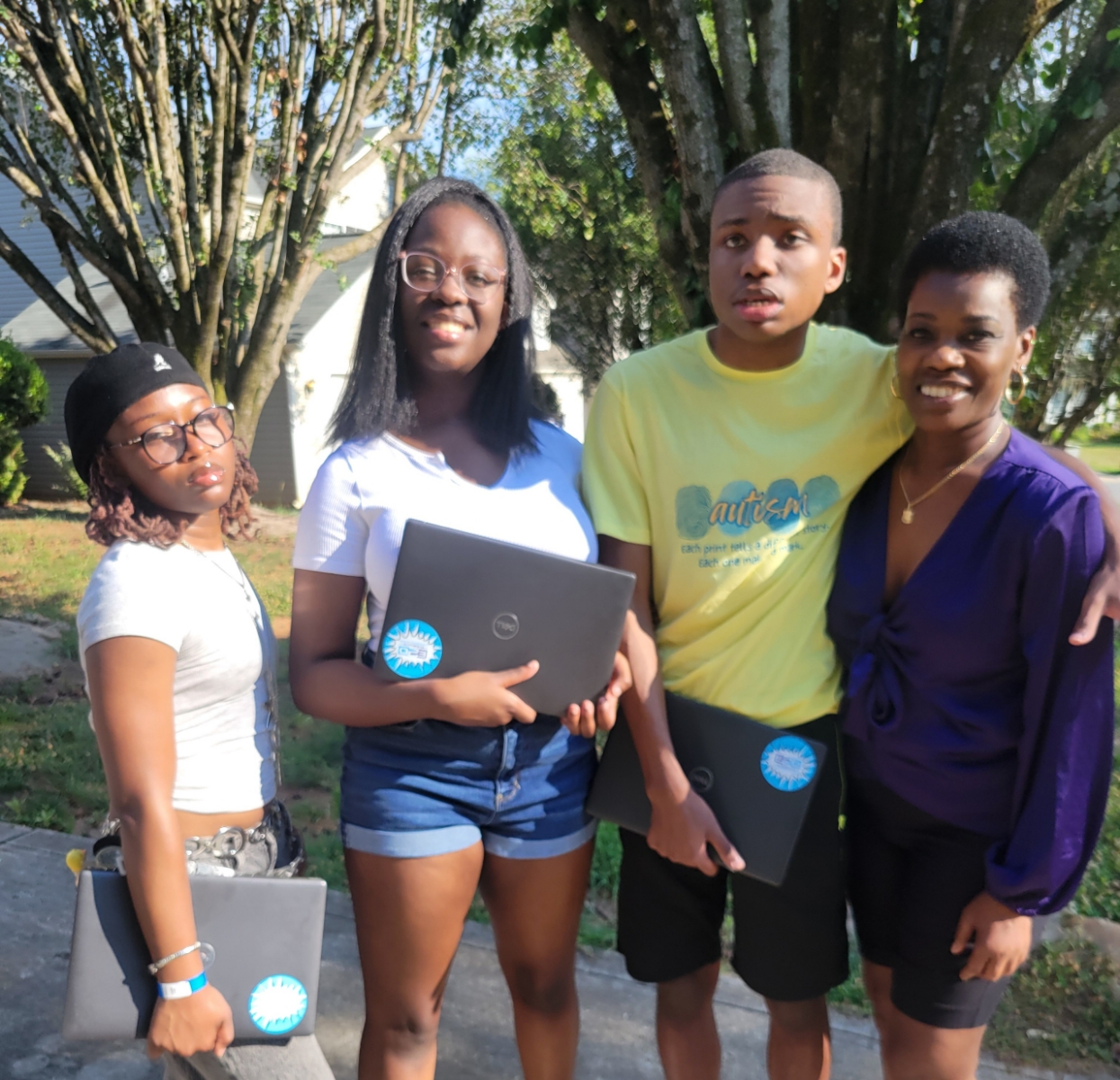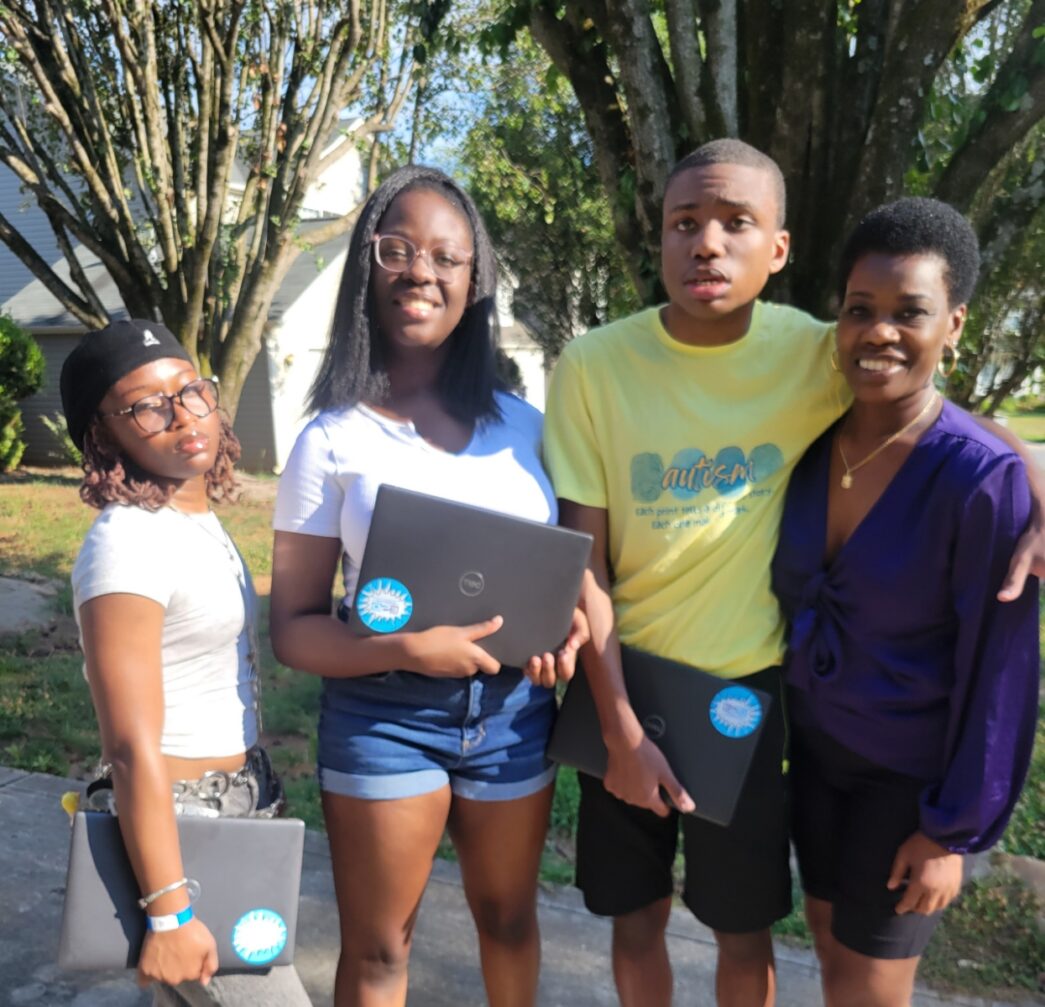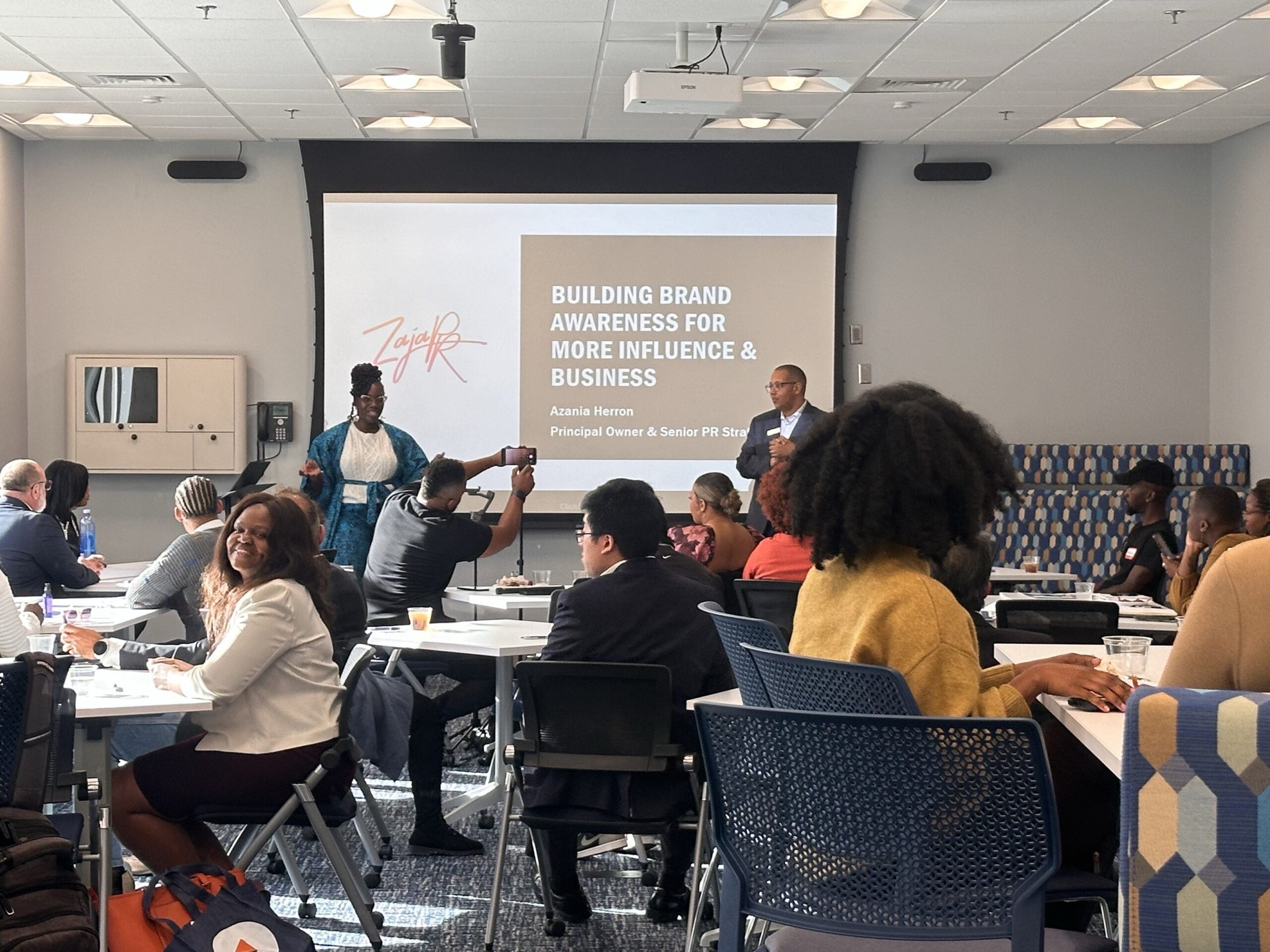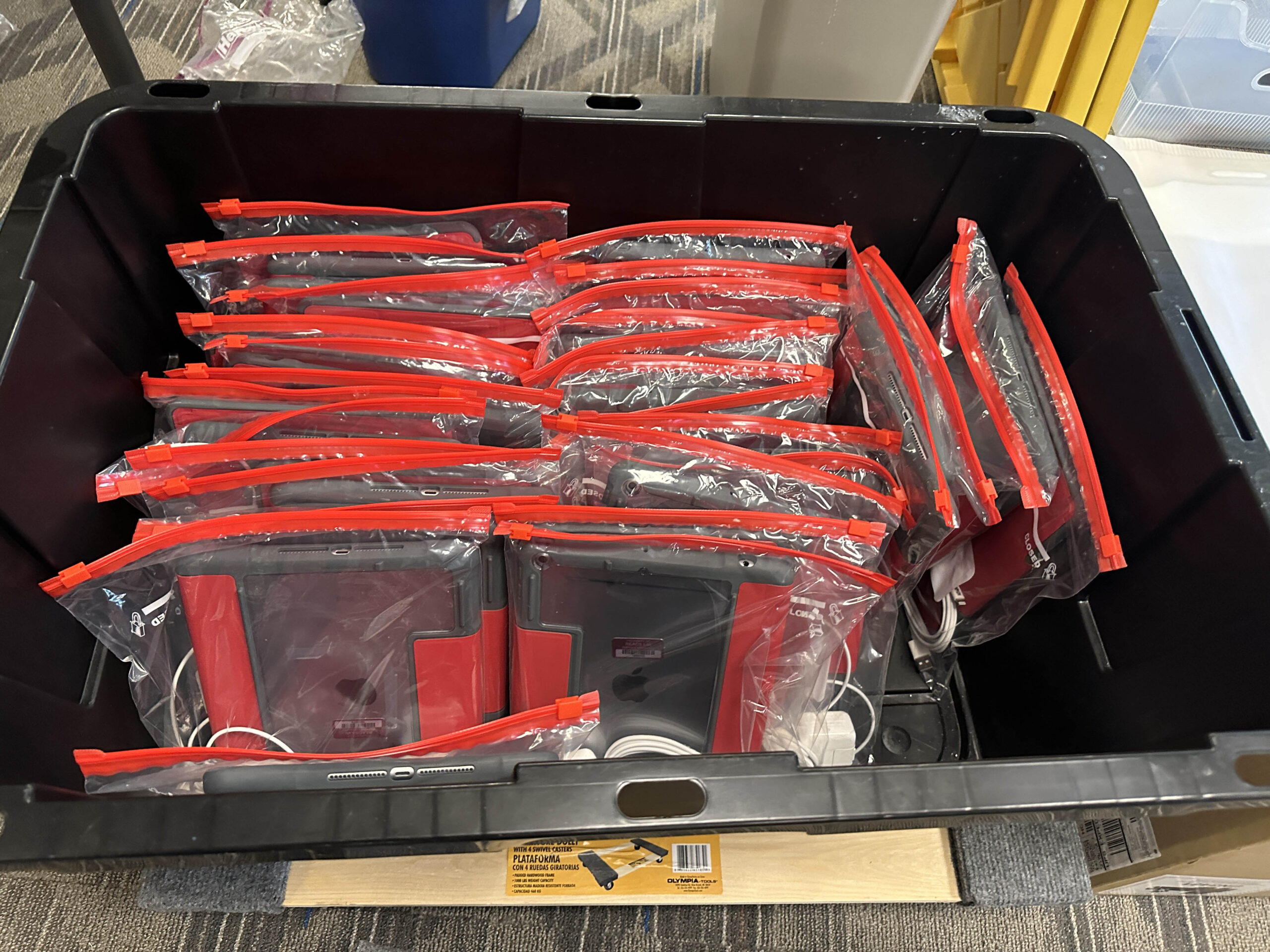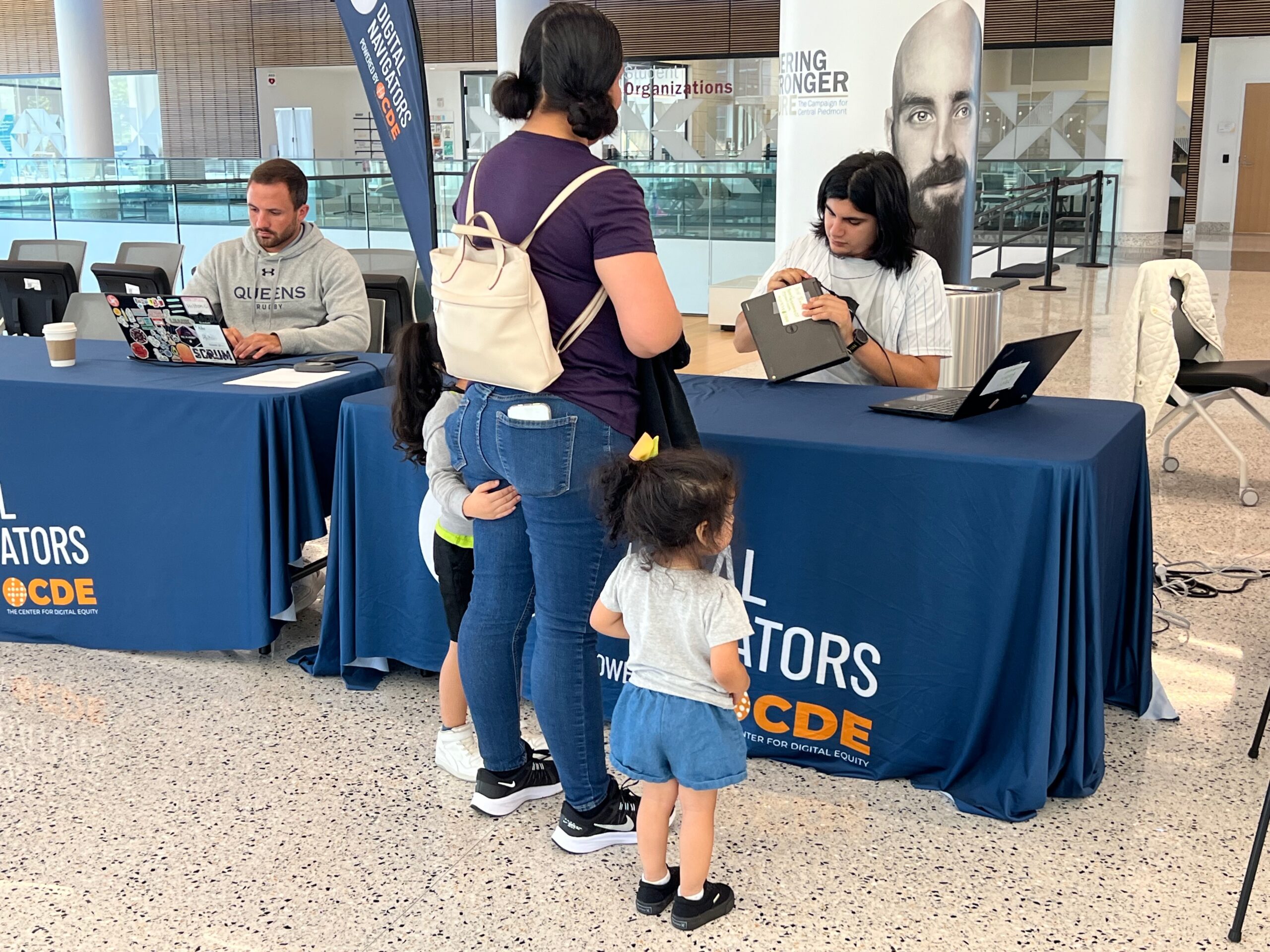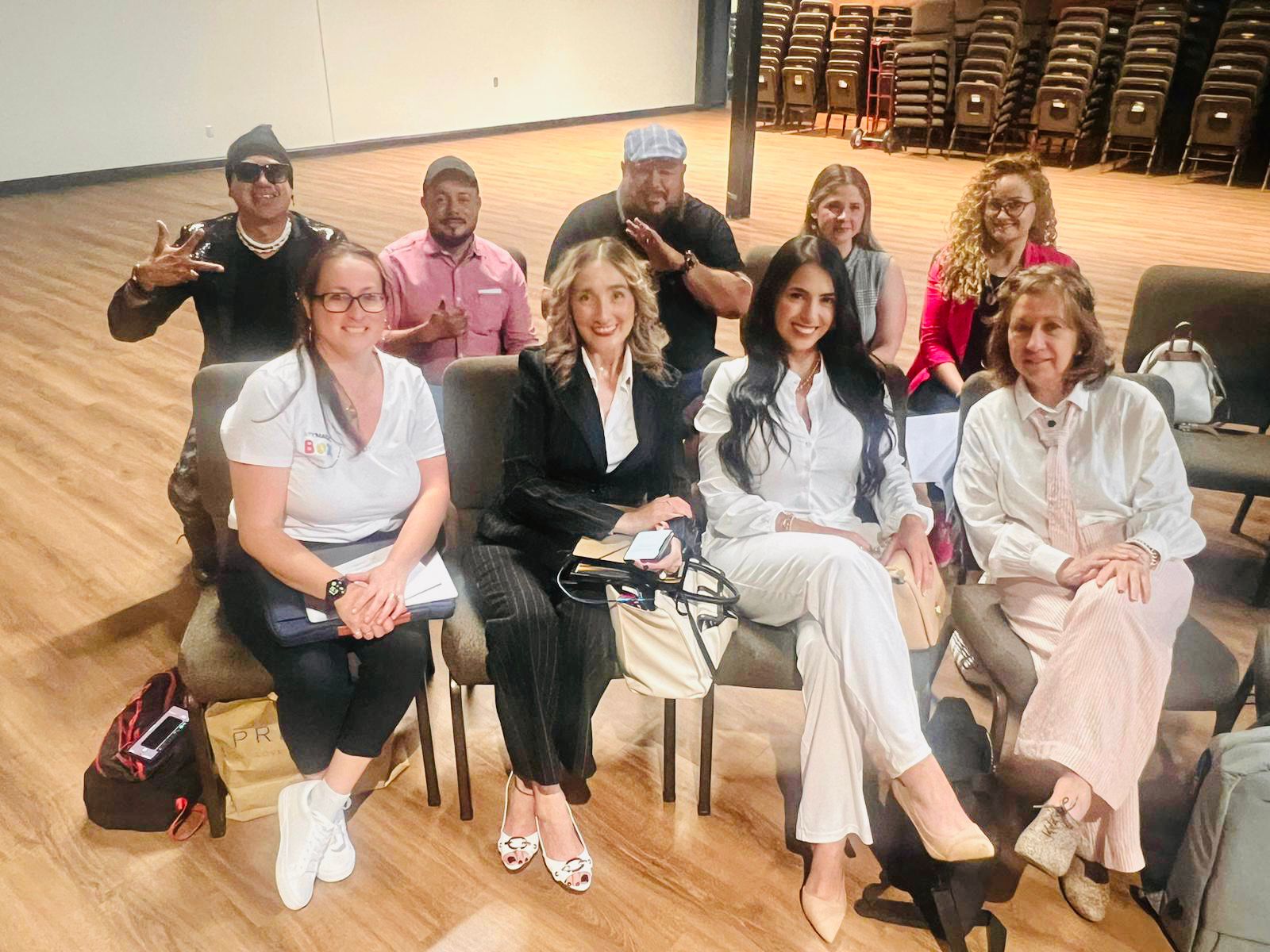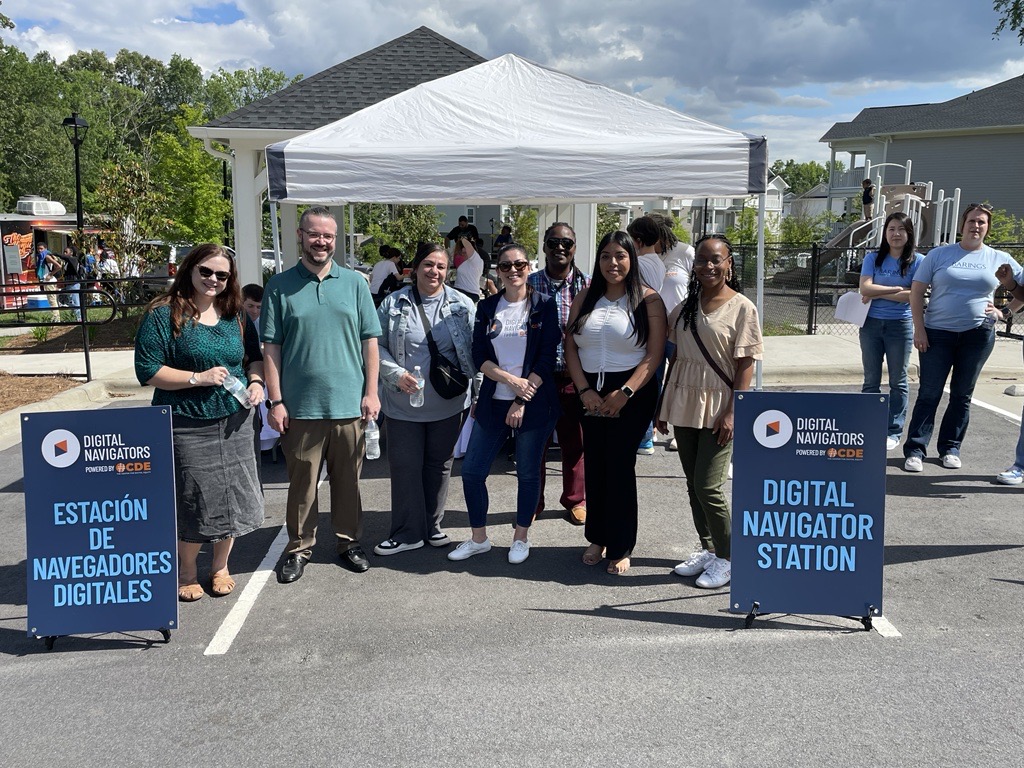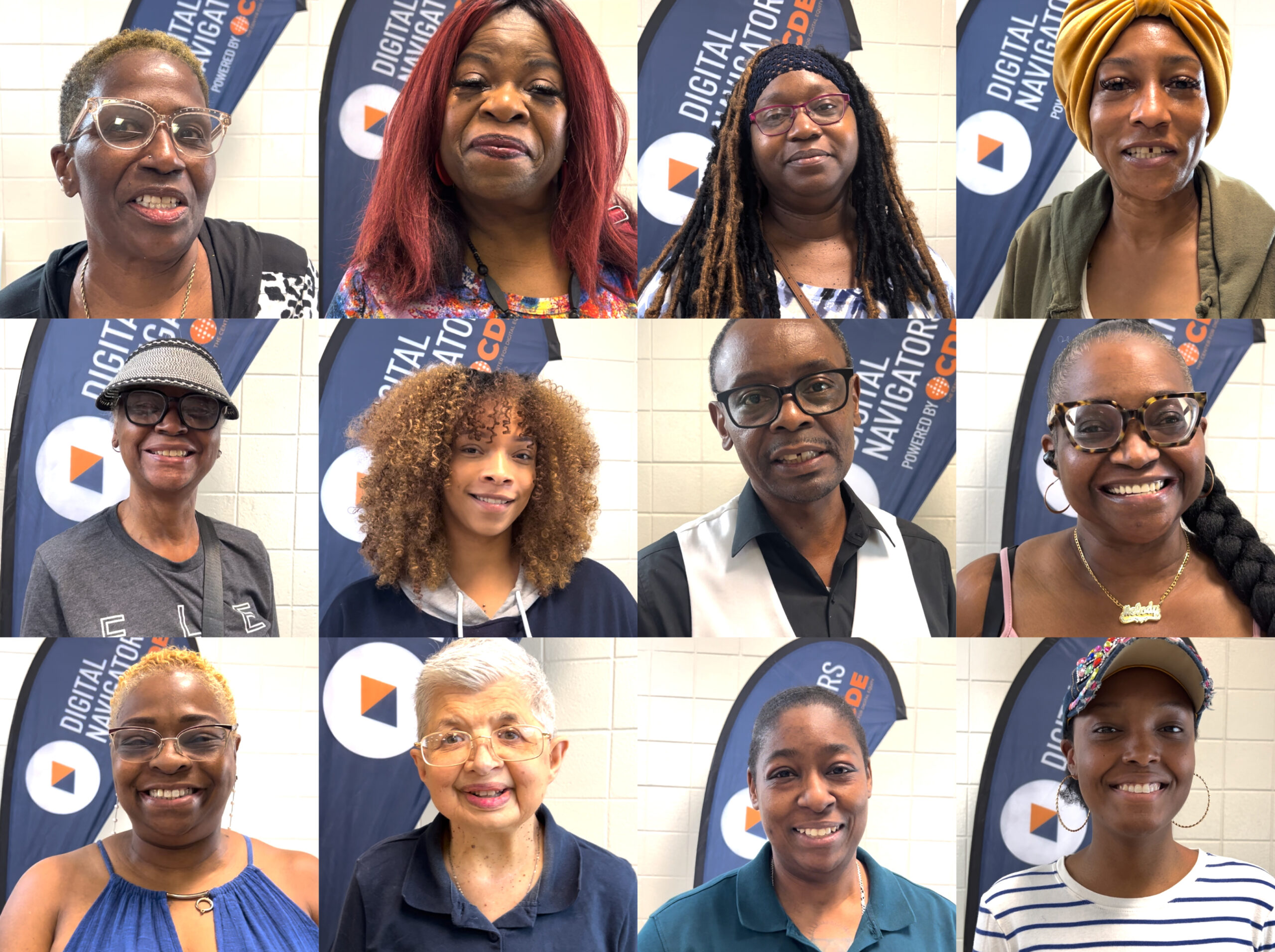
Impact Story
The latest about digital inclusion in Charlotte and CDE’s direct impact
For some of us, technology is a luxury, a “nice to have” thing that enhances our lives. But for some families, digital technology is truly a lifeline.
This becomes apparent when working with a grassroots partner such as Let’s Talk About It…The Autism Center (LTAI-TAC). This is an award-winning education and advocacy organization working to facilitate greater opportunity for youth and adults with Autism Spectrum Disorder (ASD). Much of their work is done in partnership with other organizations—and the CDE is proud to be on that list.
The work that the center does makes it very clear that digital devices, apps, and connectivity can make a huge difference in the lives of these families, and play a positive role in helping youth with ASD lead fulfilling lives.
The Motivation Behind Let’s Talk About It…The Autism Center
The origin story of the Let’s Talk About it…The Autism Center is a very personal one for La Becky Roe, founder and executive director of the center. Her own son, now age 29, was diagnosed with Autism when he was three years old.
“When my son was diagnosed, I wanted to know: Who can help me? Who is going to help him? Who is going to help us?” says Roe. “And importantly, I wanted to know where. Where do I find out more about autism? Where do I get help?
“And back then, we were presented with only two options: Talk to a neurologist or a speech therapist. That was it.
“So I promised myself: I would be a vehicle for the parents coming after me, to show them the way. To be there when they had those same questions.”
Digital devices, apps, and connectivity can make a huge difference in the lives of these families, and play a positive role in helping youth with ASD lead fulfilling lives.
Since its founding, Let’s Talk About It…The Autism Center has been helping educate parents as to what autism is, and where to find resources. This means, in part, getting parents the training they need to help their individual family members who are diagnosed with autism, as well as any outside support and help. They also help to advance the social, academic, and vocational development of individuals on the autism spectrum, with a focus on youth aged three to 25.
“When I talk [to parents],” explains Roe, “it’s like… you can feel the air come out of them, right? Like they are no longer holding their breath. They’re relieved. They’re thinking, ‘Finally, someone who understands—someone who can help me move forward in my journey.’
“And that’s the thing,” she adds. “Every journey is a journey of hope.”
How Digital Technologies Are a Game Changer for Families
“When I talk [to parents], it’s like you can feel the air come out of them. Like they are no longer holding their breath. They’re relieved. They’re thinking ‘Finally, someone who understands.”
LaBecky Roe, Founder and Executive Director, Let’s Talk About It..The Autism Center
Digital devices and connectivity are already a necessity for most people to participate in modern living. But for families with youth diagnosed with autism, such technologies can be a lifeline. There are so many more ways in which devices can be useful in these contexts:
- Having a connected computer can help parents and teachers create and customize educational plans for youth with autism.
- Devices can be used to help enhance communication, especially for youth that have trouble articulating themselves or communicating verbally.
- Youth with autism can also use devices to practice creating and sharing stories, which can be a vital part of learning social engagement.
- Parents and teachers can download apps specifically designed for individuals on the autism spectrum, and that can help with things like remembering and tracking goals, enhancing social skills, establishing routines, and more.
This is one reason why the Let’s Talk About It…The Autism Center saw the value of providing low-cost and no-cost devices to families that need them, as well as information about connectivity programs and digital skills classes. And so the center reached out to the CDE to see if they could be a resource for them at an upcoming resource fair.
How the CDE Makes it Possible
The CDE was able to provide Digital Navigators for the center’s resource fair, helping families to get connected with digital resources. The partnership is ongoing, however; through additional efforts, more and more parents who would not otherwise be able to afford a computer can get one and use it to help their children on the autism spectrum.
